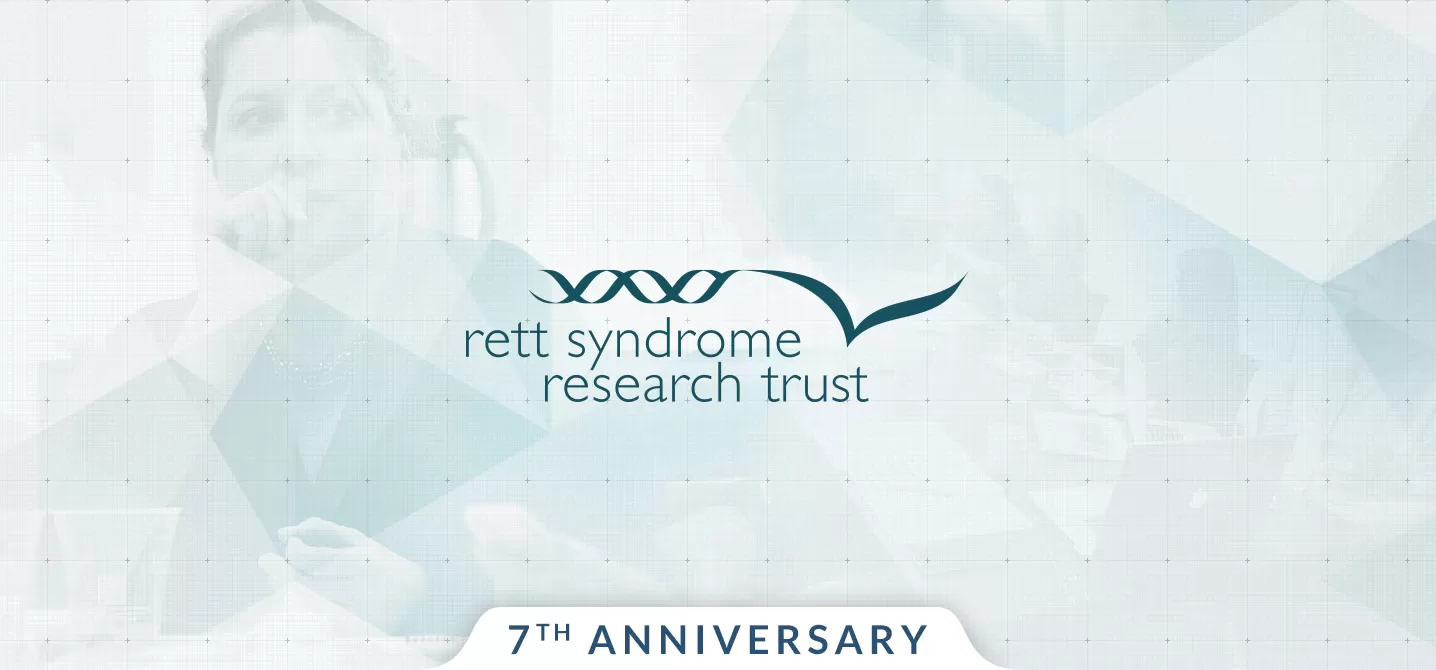Seven Years and Counting

Today is the seven-year anniversary of the launch of RSRT. In the midst of crazy schedules and workloads, anniversaries offer an opportunity for a few quiet moments of reflection on both achievements and challenges ahead.
For me the last 7 years, while demanding, have been the most rewarding of my life. To be given the freedom, the confidence and the trust by my board, our donors and the families that raise funds to pursue the work that will one day free our girls, my precious Chelsea included, is a gift that I cherish.
While science can never move fast enough to satisfy my maternally inspired timeline for a cure, I recognize that the Rett research field has come a very long way in the past 7 years. And it’s satisfying to know that RSRT has had more than a tad to do with this progress.
From the get-go RSRT was committed to funding people and projects with the potential to dramatically change the lives of our girls. Settling for marginal improvements is simply not good enough.
An exciting area of research, activating the silent MECP2 on the inactive X chromosome, was put on the research map by RSRT. It wasn’t easy as scientists were skeptical and hesitant. We started by funding one lab, then two, then another joined. Today we are supporting six labs that are trying synergistic approaches to waking up the back up MECP2 gene. These scientists have bucked the traditional “we work alone” mentality that plagues science and are showing remarkable openness and trust as they share their data, brainstorm and troubleshoot, via in-person meetings and conference calls.
Industry is showing interest in this approach due to the advantages that it brings: the approach addresses the root of the problem, you don’t have to deliver MECP2….it’s already there; no worries of having too much MECP2; the approach would be pharmacological (a drug) rather than biological (gene/protein therapy).
Another approach that has been put on the map by RSRT is the hunt for modifier genes that dampen the ill effects of an MECP2 mutation. The first modifier, squalene epoxidase, was published in 2013 by Monica Justice and has led to a clinical trial currently ongoing at Children’s Hospital at Montefiore in the Bronx.
The screen is now just over halfway through and Dr. Justice has identified several dozen modifiers. Interestingly, the modifiers are not ad hoc all over the genome but rather are falling within distinct molecular pathways. By the time the screen is done we may have 50 or so modifiers some of which will undoubtedly be druggable. Dr. Justice’s data has also revealed that Rett Syndrome has characteristics of metabolic disease, something that had not been fully appreciated before.
Rett is a complex problem and no single lab has the expertise and resources to eradicate it. So early on RSRT cultivated an environment where collaborations could flourish. While such partnerships cannot be imposed, they can be nurtured and RSRT has done just that with ourMECP2 Consortium, which launched in 2011 and our Gene Therapy Consortium that started two years later. Scientists who were previously competing are now working together to solve difficult problems.
The most dramatic evidence that our science is maturing and that progress is being made is the interest in Rett from pharmaceutical and biotech companies. I’m sometimes tempted to pinch myself to make sure I’m awake and not dreaming. Scientists studying many other diseases including autism would give their right arms to be where we are at this very moment.
Along the way I’ve learned a few valuable lessons:
- Do not fall in love with the science that we fund. To do that means to lose objectivity.
- Stay nimble – new technologies and data must continually be monitored for and adopted when appropriate.
- Don’t become insulated – RSRT is constantly soliciting feedback on “everything Rett “– every paper that comes out and every announcement that is made receives a thorough objective and comprehensive analysis
- Don’t accept dogma without proof
- Surround yourself with smart and creative people – mediocrity won’t cut it
While it’s healthy and necessary from time to time to step back and recognize our achievements, the time to celebrate has not yet arrived. That time will come when our girls are healed and can celebrate with us.
For now there are challenges ahead and lots of work still to be done. Speaking of which…. back to the real work at hand for me.


